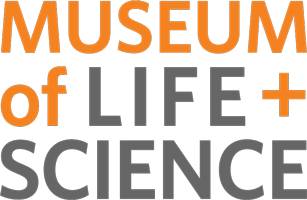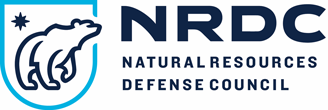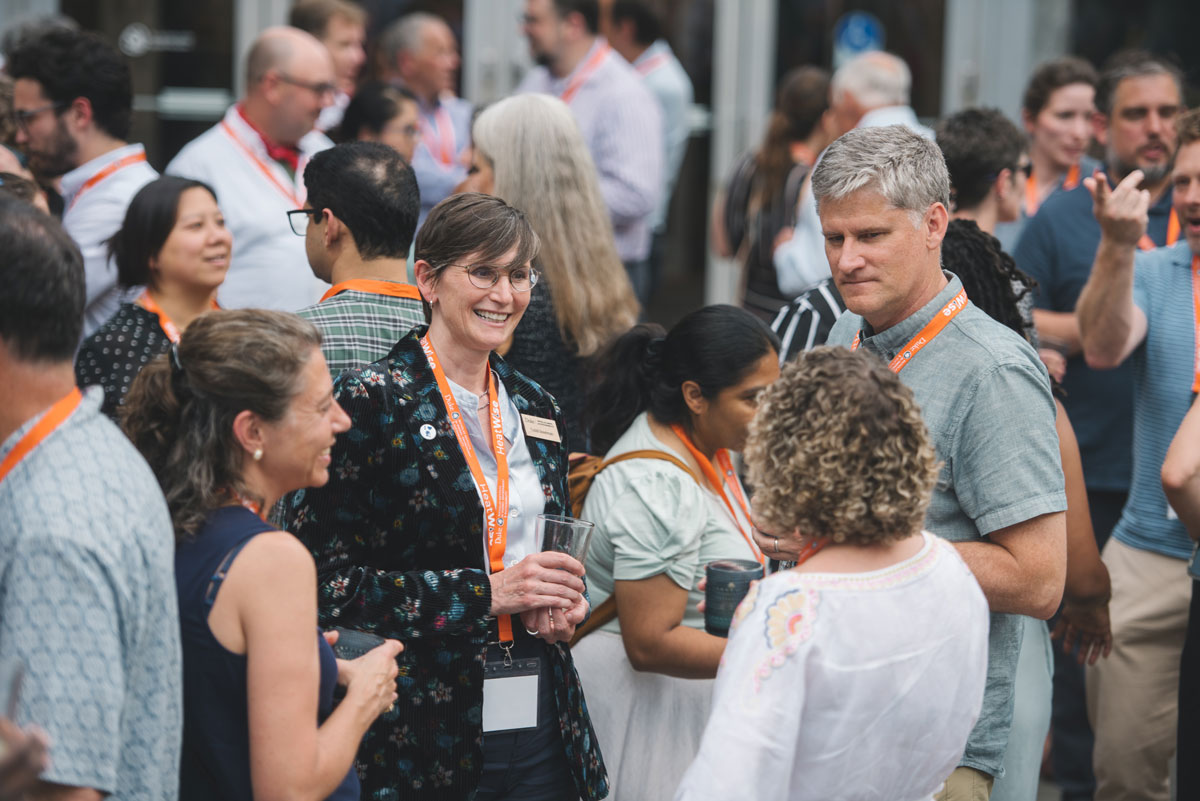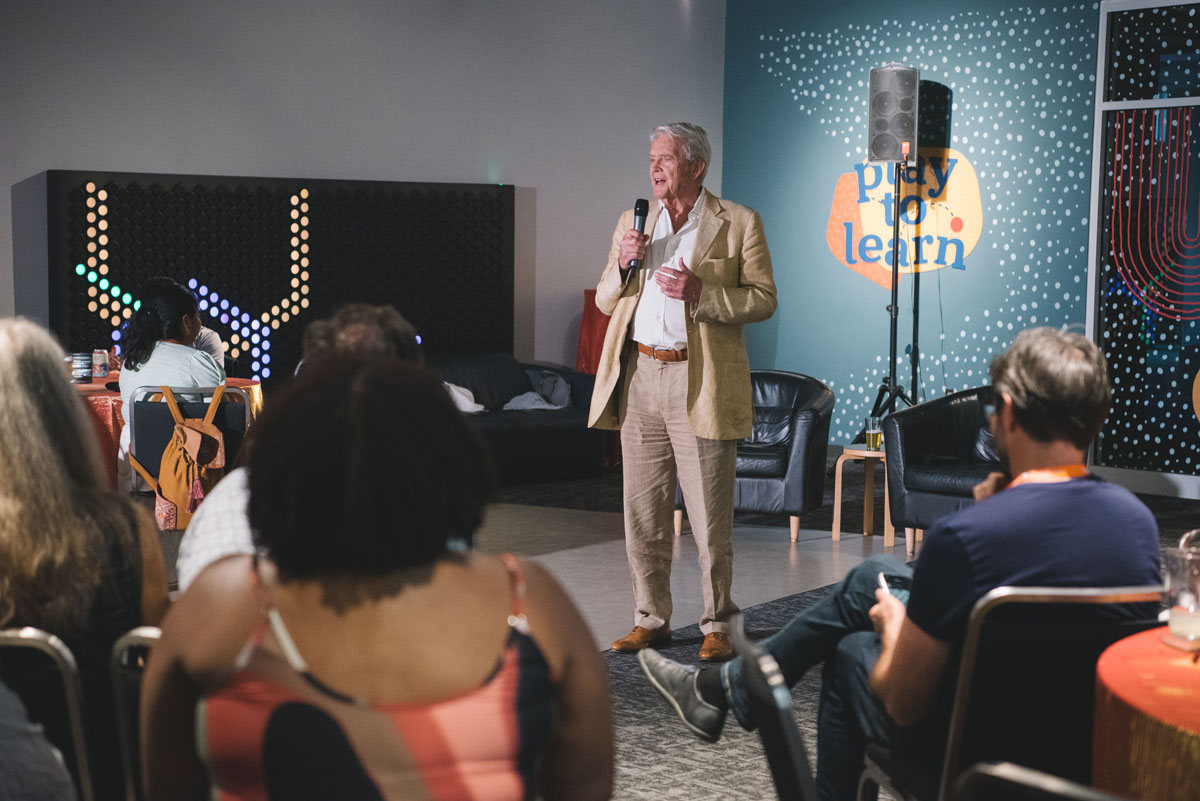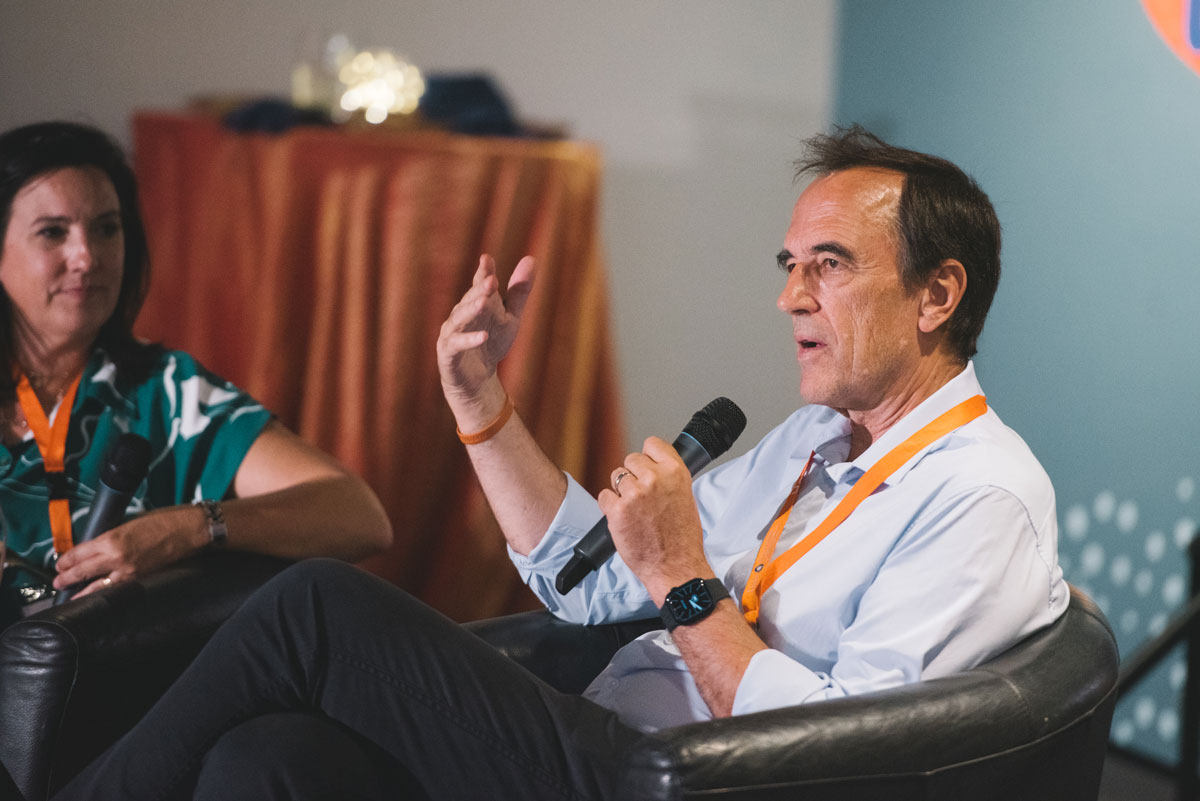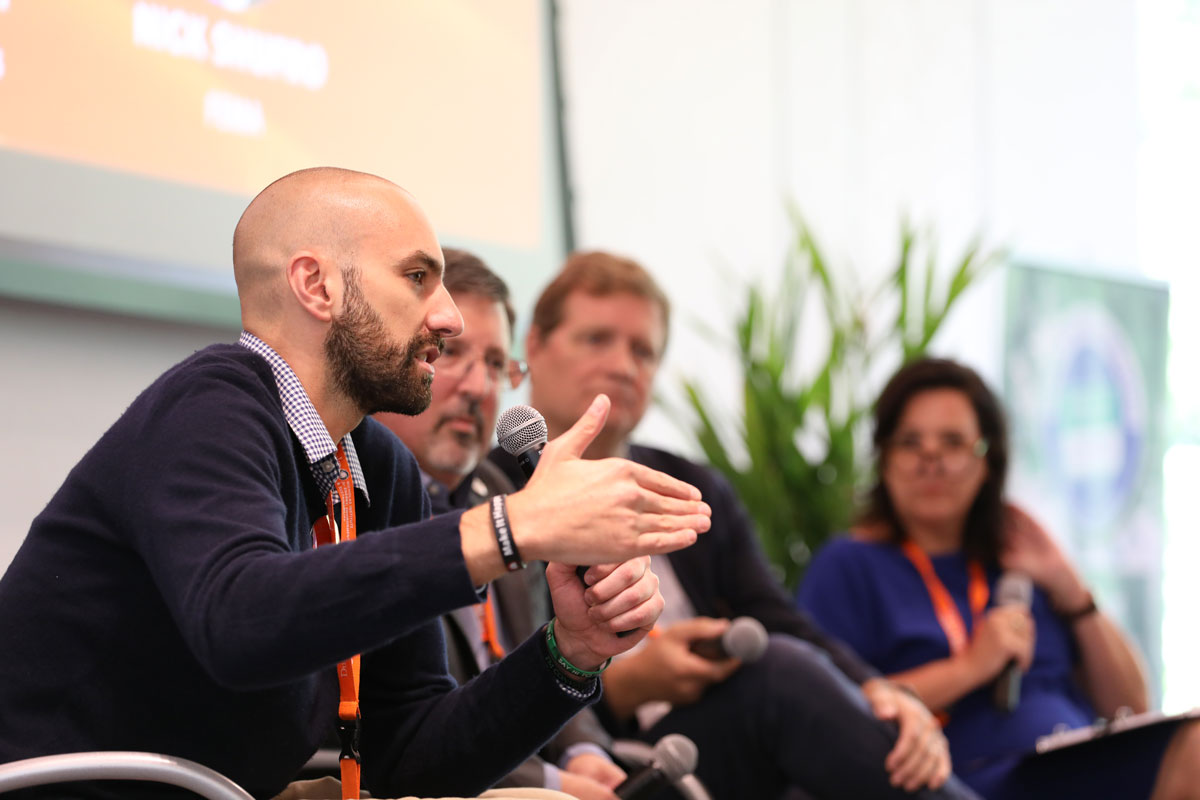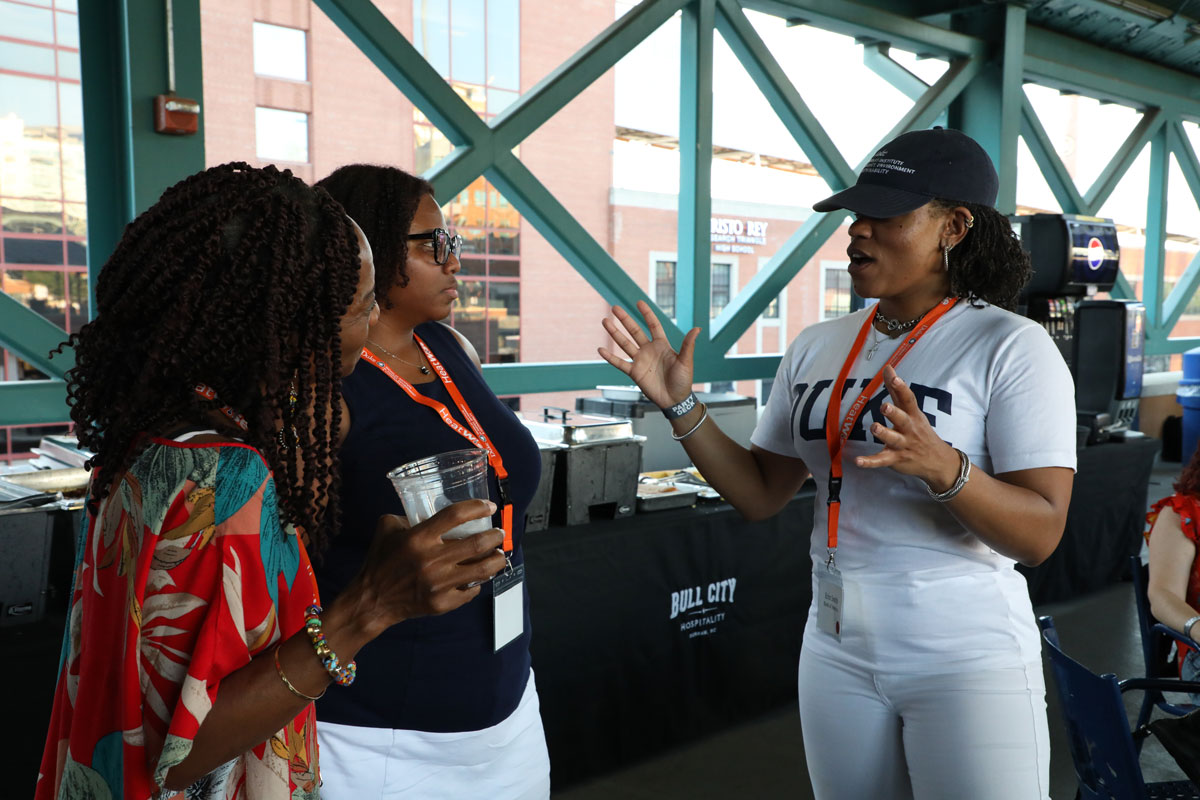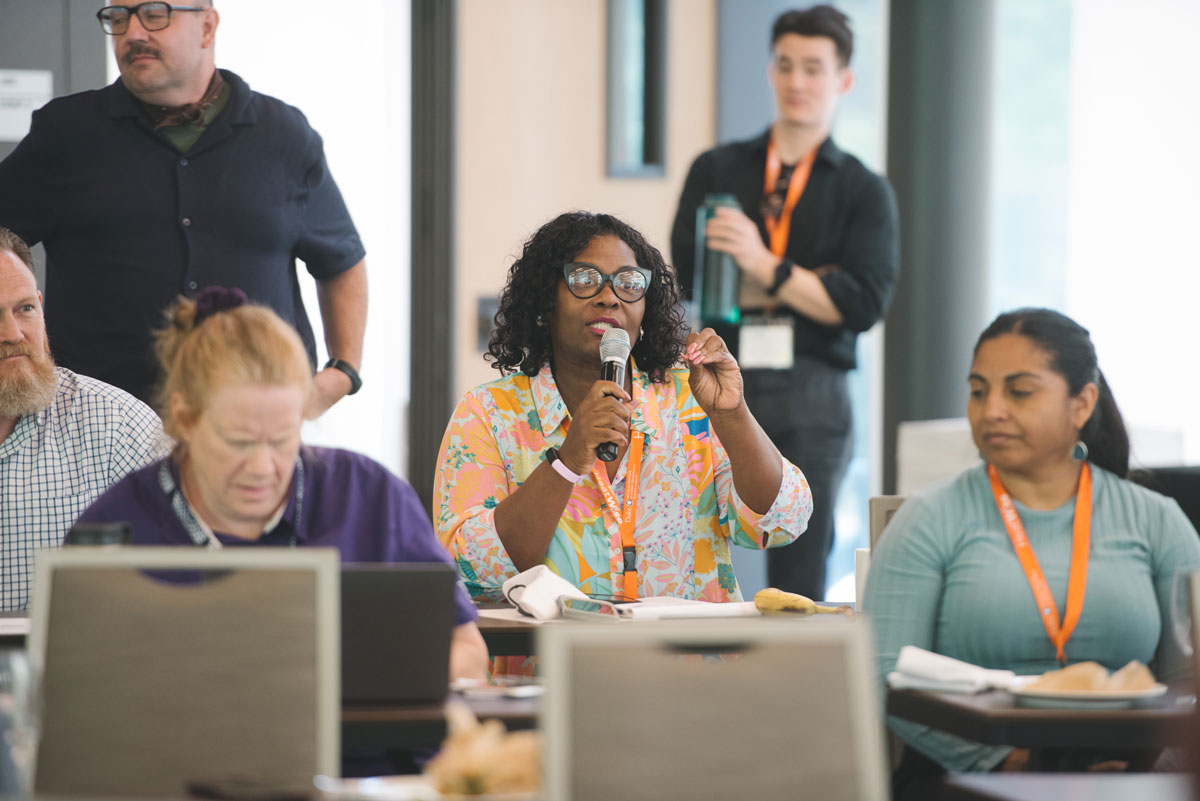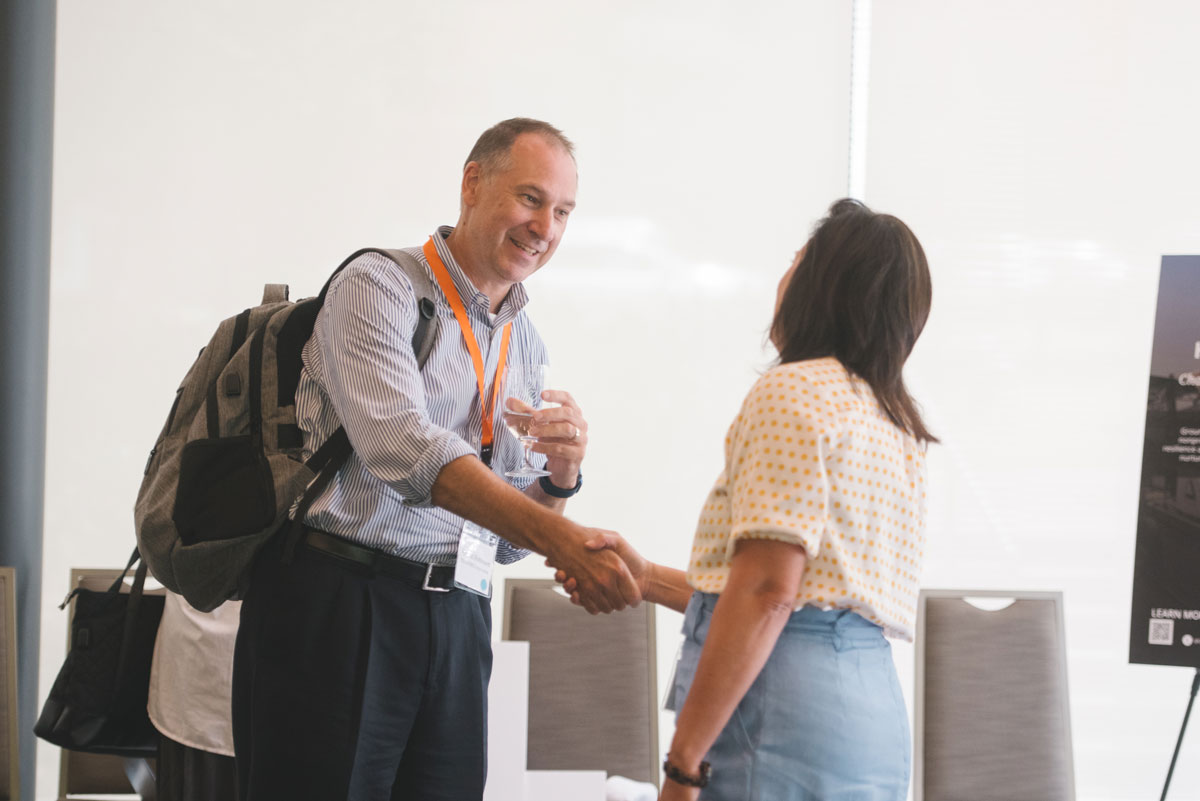← All News
July 2, 2024
Duke Summit Forges Purposeful Partnerships to Tackle Extreme Heat
Nicholas Institute for Environmental Policy Solutions
Event Recordings
The first week of summer brought a heat wave to much of the United States, causing temperatures to spike to triple digits in many locations. That kind of extreme heat endangers human health and hinders economic productivity—and climate scientists expect it to become more common and intense.
Against that backdrop, the Heat Policy Innovation Hub at Duke University convened more than 100 leaders from different sectors and parts of the country for three days to identify ways to make communities more heat resilient. The inaugural HeatWise Policy Partnership Summit brought together executives from leading financial and insurance companies, high-ranking federal and state officials, foundation officers and Duke faculty, as well as community organizers whose work supports vulnerable populations.
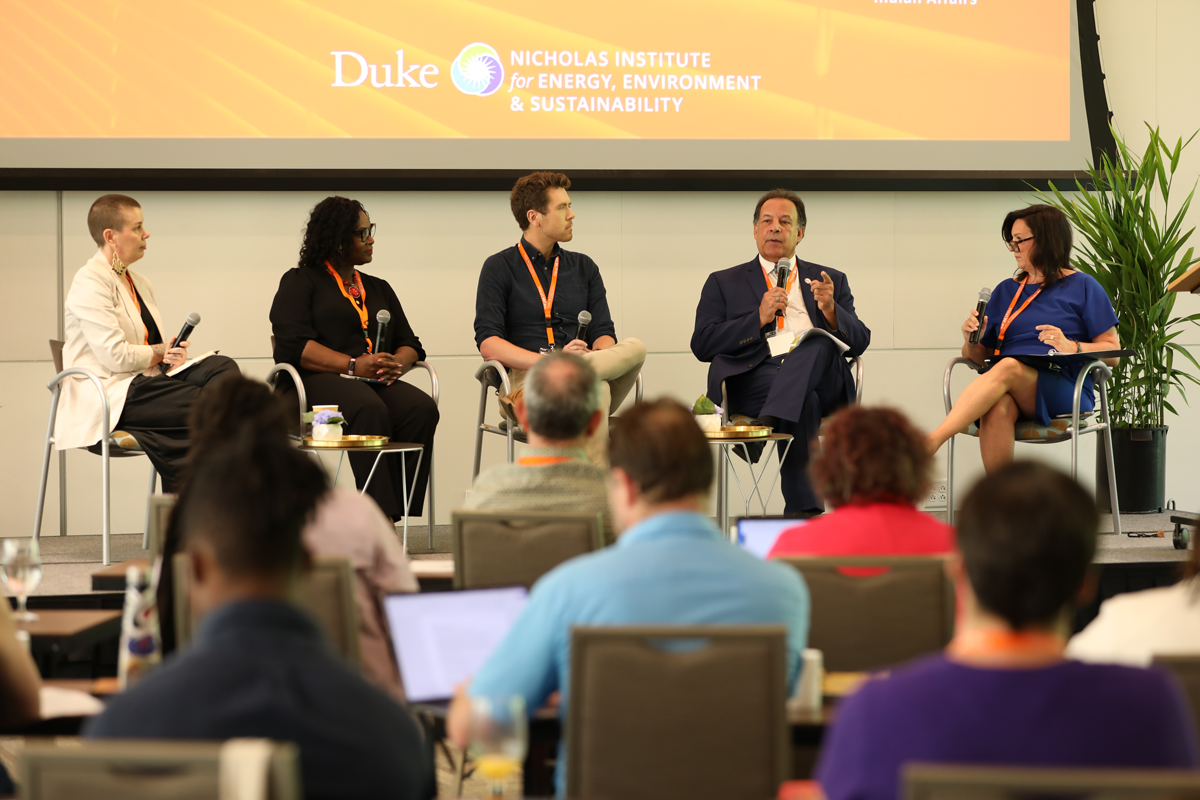
Panelists briefed attendees on rural heat vulnerability (from left): Lea Campbell (Mississippi Rising), Angella Dunston (Roanoke Cooperative), Montana Eck (Mastercard), Greg Richardson (NC Commission on Indian Affairs) and moderator Ashley Ward (Nicholas Institute).
“The urgency of this challenge is undeniable,” said Ashley Ward, director of the hub, which is based at Duke’s Nicholas Institute for Energy, Environment & Sustainability. “Some at the summit have been working on heat and health issues for years, while others are newer to the problem, having witnessed its devastating impacts in their communities and economic sectors. We’re all motivated, we all have useful insights, and it’s imperative that we share those perspectives to craft solutions that will actually work in communities.”
The summit centered on three core themes:
- Rural heat interventions
- Data for risk, exposure and impact
- Blended finance and the future of the insurance industry
For each topic, expert panelists briefed attendees to provide an overview of key issues. Participants then split into three roundtable groups to identify knowledge gaps, share insights and lessons learned and map out evidence-based, community-centered solutions.
“Part of what heightens the failure rate whenever you're working on a complex problem is when the silos never meet,” said Kimberlee Cornett, senior director of impact investments at the Robert Wood Johnson Foundation. “You need to pressure test ideas from a number of different dimensions: Is it what the community wants? Is it financially feasible? Is it scalable? Can you solidify good solutions with policy?”
Conversations extended well beyond the formal discussions—which was exactly what Ward intended.
“We designed social activities to help attendees get comfortable enough with one another to have productive—if sometimes difficult— conversations, and to work together long after the summit,” she said.
“It's about maximizing benefits to the community, building capacity, ensuring that we're using all the assets in the community, empowering people and, more importantly, advancing innovation in a just manner.” – 2024 HeatWise summit participant
Participants attended a welcome event at the Museum of Life and Science featuring local performers and a talk by Jeff Goodell (author of The Heat Will Kill You First: Life and Death on a Scorched Planet) and took in a Durham Bulls game.
“People were brought here who normally would not sit shoulder to shoulder,” said Pamela Williams, assistant administrator for the Federal Emergency Management Agency’s Grant Programs Directorate. “There is such vast knowledge, expertise and a willingness to take off your hat and truly try to problem solve, be creative and be ambitious. Rarely do most of us as professionals get to sit aside for a day and a half and really tackle an issue with so many resources beside us.”
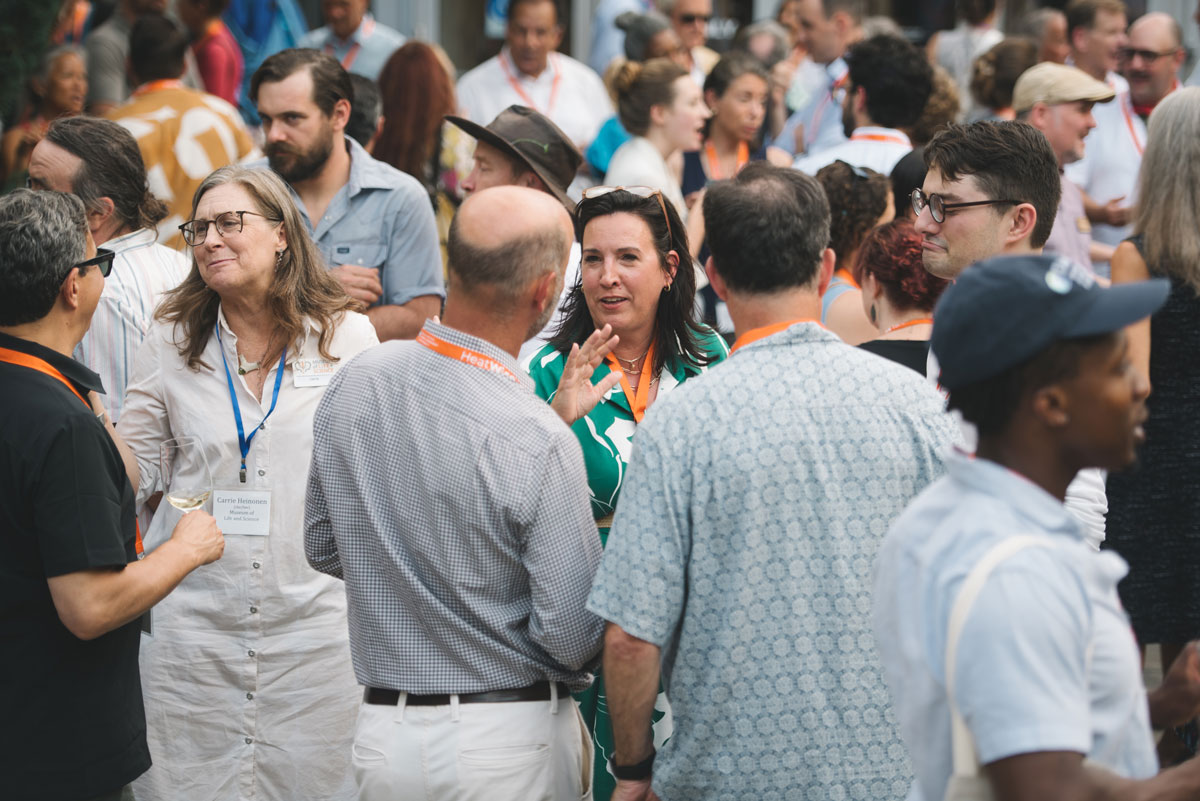
Ashley Ward (center), director of the Duke University Heat Policy Innovation Hub, greets HeatWise participants during a networking event at the Museum of Life and Science.
All three themes generated robust exchanges, but the summit’s focus on often-overlooked rural areas especially resonated with many of the community groups.
“Rural communities are the stepchild—you’re in the family, but you get the leftovers,” said Angella Dunston, coordinator of public relations and engagement for Roanoke Cooperative. “For our voice to be heard and at the table and for others in this space to validate that rural communities are important in this unfortunate crisis was really important.”
Summit attendees will continue to collaborate as part of the HeatWise Policy Partnership, which Ward describes as a “heat policy brain trust.” This fall, the Nicholas Institute will publish a report identifying concrete recommendations on the summit’s core themes and will facilitate coordination among attendees to help decision-makers understand how they can accelerate solutions.
In addition, just a few days after the summit, Ward reports her inbox is “overflowing” with notes about new partnerships taking shape among small groups of attendees.
“Keeping communities safe from heat’s health threats is among the most pressing challenges humanity faces,” noted Brian Murray, director of the Nicholas Institute. “The HeatWise Policy Partnership leans into Duke University's institutional strengths, including our convening power, world-class experts in climate and health and our commitment to forging purposeful partnerships.”
“We have a lot of the capital and a lot of the data that we need to make good decisions and make good things happen. But we need to better define and prioritize some of the outcomes that we're working for so that we can get ourselves organized.” – 2024 HeatWise summit participant
Event Photos
“I learned [so much] from people who talked about what is working in their community or in their field, and how powerful that is for an emerging field. We heard lots about what's not working, but I think the examples that will stick with me are those where there's some interesting things going on, including in places that are very different from where I work.” – 2024 HeatWise summit participant
Sponsors of the 2024 Summit
The HeatWise Policy Partnership Summit was made possible by support from these organizations, who are investing in policy leadership to protect communities across the United States in the face of extreme heat.




